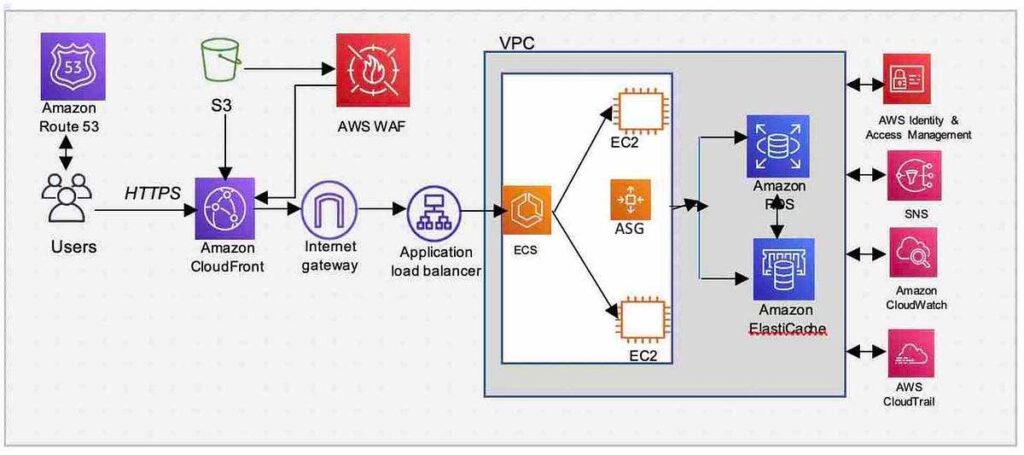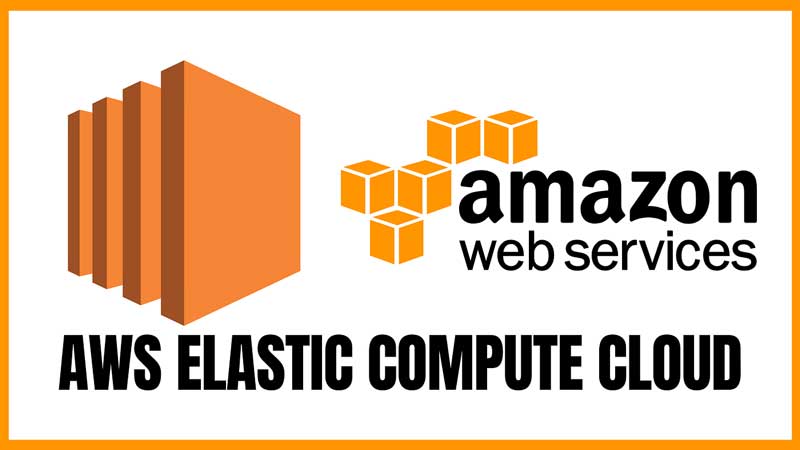What is AWS Technology?
Amazon Web Services (AWS) is a cloud computing platform developed by Amazon, offering a wide range of services such as computing power, storage options, networking capabilities, machine learning, analytics, and more. As the market leader in cloud computing, AWS provides scalable, reliable, and cost-effective solutions for businesses of all sizes.
Core Services of AWS
AWS offers over 200 services, categorized into key domains:
- Compute:
- Amazon EC2 (Elastic Compute Cloud): Scalable virtual servers for various workloads.
- AWS Lambda: Serverless computing to run code without managing servers.
- Elastic Beanstalk: Simplified deployment of web apps.
- Storage:
- Amazon S3 (Simple Storage Service): Scalable object storage for data and backups.
- Amazon EBS (Elastic Block Store): Persistent block storage for EC2.
- Databases:
- Amazon RDS: Managed relational databases like MySQL and PostgreSQL.
- Amazon DynamoDB: NoSQL database for high-performance applications.
- Networking:
- Amazon VPC (Virtual Private Cloud): Isolated cloud resources for secure networking.
- Amazon Route 53: Scalable DNS and domain registration service.
- AI/ML:
- Amazon SageMaker: Build, train, and deploy machine learning models.
- Rekognition: Image and video analysis tools.
- Analytics:
- Amazon Redshift: Data warehousing for analytics.
- AWS Glue: Data integration and ETL (Extract, Transform, Load) service.
- Security:
- AWS IAM (Identity and Access Management): Secure access control.
- AWS Shield: Protection against DDoS attacks.

The Future of AWS
AWS continues to innovate, shaping the future of cloud computing:
- Serverless Architecture Growth:
- Serverless computing with AWS Lambda is becoming the norm for many applications, eliminating infrastructure management.
- Focus on Sustainability:
- AWS is committed to using renewable energy and building sustainable data centers, making it attractive to environmentally conscious businesses.
- Enhanced AI/ML Integration:
- AWS leads in providing advanced machine learning tools with SageMaker and AI services, enabling businesses to leverage AI capabilities.
- Edge Computing Expansion:
- Services like AWS Outposts and Wavelength ensure faster processing and lower latency by bringing AWS services closer to the user.
- Quantum Computing:
- AWS Braket offers access to quantum computing resources, paving the way for solving complex problems in science and business.
Market Impact of AWS
AWS dominates the global cloud computing market, with a 32% market share (as of 2024). Its impact includes:
- Business Transformation:
- AWS has empowered businesses to move from capital-intensive infrastructure to scalable cloud models.
- Startup Ecosystem:
- AWS provides free credits and tools to startups, enabling rapid growth and innovation.
- Global Reach:
- AWS spans 99 Availability Zones across 31 regions, ensuring businesses can operate globally with low latency.
Business Benefits of AWS
- Scalability:
- AWS allows businesses to scale up or down based on demand, ensuring cost-efficiency.
- Cost Optimization:
- Pay-as-you-go pricing eliminates the need for upfront investments in hardware.
- High Availability:
- AWS offers 99.99% uptime and resilience through its global network of data centers.
- Security:
- Built-in security features like encryption, compliance certifications, and advanced monitoring tools ensure data safety.
- Innovation:
- Access to cutting-edge technologies like AI, machine learning, IoT, and quantum computing fosters innovation.
Where and How to Learn AWS
- AWS Official Training:
- AWS offers free tutorials, certification paths, and labs on the AWS Training and Certification portal.
- Online Platforms:
- Coursera and Udemy: Offer affordable courses for beginners and experts.
- A Cloud Guru: Known for AWS-specific training.
- Certifications:
- AWS certifications like AWS Certified Solutions Architect and AWS Certified Developer are highly valued.
- Hands-On Practice:
- The AWS Free Tier allows users to experiment with services without incurring costs.
- Communities and Forums:
- Joining AWS user groups and forums like Reddit’s AWS community helps in gaining practical knowledge.
Tools and Technologies Used in AWS
- Cloud Management Tools:
- AWS Management Console
- AWS CloudFormation for infrastructure as code
- AI/ML Tools:
- SageMaker, Rekognition, and Polly
- Monitoring Tools:
- AWS CloudWatch and AWS Trusted Advisor
- Development Tools:
- AWS CodePipeline, CodeBuild, and CodeDeploy
- Storage Solutions:
- Amazon S3, Glacier, and EFS
Scalability and Pricing
- Scalability:
- AWS allows automatic scaling with services like Auto Scaling Groups and Elastic Load Balancers, ensuring applications perform well under varying traffic.
- Pricing:
- AWS offers a pay-as-you-go model, with additional discounts for reserved instances.
- AWS Pricing Calculator: Helps businesses estimate costs based on usage.
Comparison: AWS vs. Other Cloud Providers
| Feature | AWS | Microsoft Azure | Google Cloud |
|---|---|---|---|
| Market Share | 32% | 23% | 10% |
| Global Reach | 31 Regions, 99 Zones | 60+ Regions | 35 Regions |
| AI Tools | Advanced with SageMaker | Azure AI | TensorFlow, AI Hub |
| Ease of Use | User-Friendly | Enterprise-Focused | Developer-Centric |
| Free Tier | 12 Months + Free Tier | Limited Free Services | Generous Free Services |
AWS vs. Traditional Hosting
| Feature | AWS | Traditional Hosting |
|---|---|---|
| Scalability | Auto-scaling supported | Limited to fixed plans |
| Cost | Pay-as-you-go | Monthly or annual contracts |
| Reliability | 99.99% Uptime SLA | Variable uptime |
| Flexibility | Customizable services | Predefined configurations |
| Technology | AI, ML, and IoT support | Basic hosting features |
Benefits for New Users
- AWS Free Tier:
- Access to 100+ services for free for 12 months, ideal for beginners to learn and experiment.
- Developer Tools:
- Offers tools like AWS CLI and SDKs to simplify workflows.
- Community Support:
- Extensive documentation, forums, and support from the AWS community.
- Scalability:
- Even small applications can grow effortlessly without significant costs.
- Security:
- Advanced features ensure data protection for all users, regardless of their experience level.
Conclusion
AWS technology has reshaped how businesses operate by offering unmatched scalability, reliability, and access to advanced tools. From startups to enterprises, AWS provides cost-effective and innovative solutions, empowering organizations to thrive in the digital era.
With continuous innovation, AWS remains a leader in cloud computing, and its future holds immense potential for transforming industries and fostering global growth. Whether you’re a business owner or a technology enthusiast, mastering AWS can open doors to endless opportunities.



